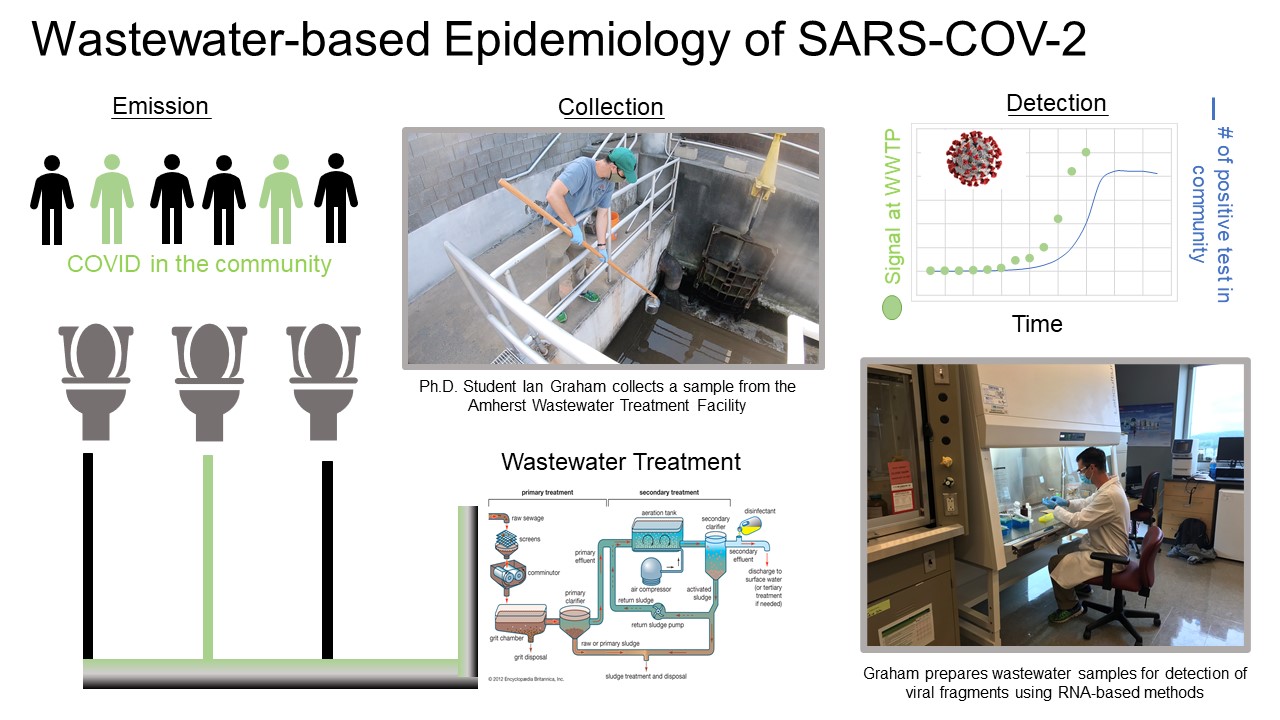
Ian Graham, UMass Fellow 2020-2022
ijgraham@umass.edu
Graduate Program: Environmental Engineering
Lab: Caitlyn Butler
Research Interests: Using metagenomic analyses to investigate microbial community composition, activity and genetic potential, particularly with applications towards wastewater treatment and resource recovery
Research Summary
Metagenomics is one of the most powerful tools available to study microbial populations. Investigations into the DNA, RNA and proteins in microbial communities can provide tremendous amounts of information about microorganisms present, their genetic potential, the genes active at a given time and the overall effect that this activity has on the environment. Valuable insights can be obtained by referencing this community data with metadata from the environment. This information can then be used to inform engineering design processes for useful biochemical reactions. There are endless biotechnology applications for the metagenomics skillset.
The Butler lab group is currently pursuing several of these applications in our research. During the Spring 2020 semester and continuing this summer, I have been evaluating 16S rRNA data from biofilm samples to determine the community composition of different samples and to look for specific genes related to wastewater treatment objectives. As I continue with this analysis I will look for correlations between the sequencing data and the chemical and biological information gathered during laboratory experiments.
We are also planning an investigation into carbon-sequestration with cyanobacterial communities. This could facilitate bioproduct generation and resource recovery in bioreactors. The processes involved are complex and require deep fundamental understanding of biology, chemistry and industrial design. To be successful in this research aim will require collaboration with researchers and professionals from other disciplines.
The COVID-19 pandemic has mobilized researchers around the world to combat the crisis. One promising approach to monitor the spread of the virus is wastewater-based epidemiology (WBE). WBE provides community level monitoring and captures individuals within a community who are either asymptomatic or pre-symptomatic. This information can be used by local governments to inform policy decisions managing the pandemic. The Butler lab group is currently developing methods to detect and quantify SARS-CoV-2 in wastewater and to be able to provide early warning detection of outbreaks in communities. This project will utilize many of the same laboratory and analytical techniques I have developed through my other research aims. We are also looking into the impact of coinfections with COVID-19 outbreaks and are hoping to discover any links between changes in the wastewater microbial populations and increased presence of SARS-CoV-2. This would allow me to apply bioinformatics to help develop understanding of how infectious diseases affect human populations.

